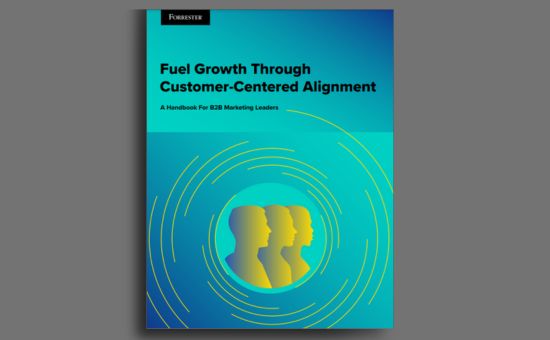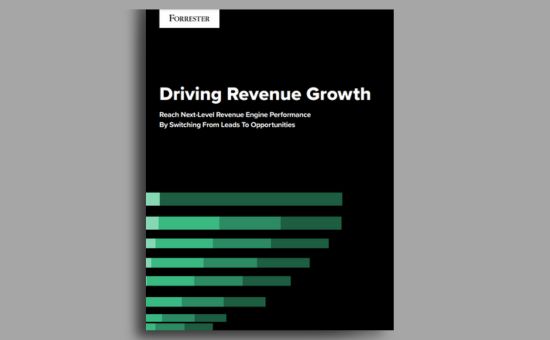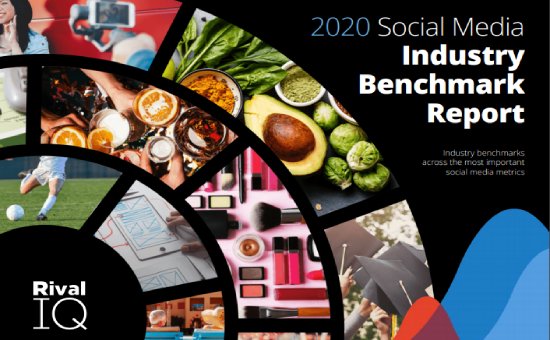Explore Six Vital Mindset Shifts For B2B Marketing Leaders | Forrester
B2B Digital Marketing
B2B Marketing’s Pivotal Moment
Disruption has long been a constant in the realm of B2B marketing. For more than a decade, marketing leaders have navigated various disruptive forces, including shifts in buyer behavior, technological advancements, and organizational dynamics changes.
Today, these disruptive elements are coalescing, poised to fundamentally alter the landscape of B2B marketing in the coming years. This convergence will not only reshape the practice of B2B marketing but also elevate it to a more significant role within organizations.
Moving beyond its traditional functions as a brand custodian, sales enabler, and lead generator, marketing will emerge as the architect of organizational success.
This transformation represents a grand vision, one that cannot be overlooked or dismissed. The time has come to fully embrace this vision and its accompanying responsibilities.
This guide outlines the various forces driving the evolution of B2B marketing and highlights the essential shifts in mindset necessary to facilitate this transformation. Explore how to activate these shifts and lead your company confidently into the future.
Four Forces Drive B2B Marketing’s Evolution
Marketing has traditionally been regarded as an aspirational profession, epitomized by Peter Drucker’s assertion that within any business enterprise, the fundamental functions are marketing and innovation. Drucker emphasized that marketing is not confined to sales but encompasses the entire spectrum of business activities.
However, in the realm of B2B marketing, this holistic view often clashes with the prevailing perceptions among leaders. In many firms, the sales, engineering, or product departments hold sway, relegating marketing to a supporting role or a mere cost center.
Even in organizations where marketing is acknowledged as a revenue driver, Chief Marketing Officers (CMOs) encounter challenges in establishing its value.
Presently, four key forces are disrupting the traditional role and scope of B2B marketing, converging to elevate it to a loftier purpose:
- Escalating demands and expectations of business buyers: Business buyers seek experiences that are seamless, interconnected, intuitive, and instantaneous. Their preferences are increasingly aligned with vendors who share similar values. Addressing these evolving buyer behaviors ranks among the top priorities for B2B marketing leaders.
- Technological advancements offering unprecedented opportunities: Marketing technology has emerged as a crucial facilitator of B2B marketing, consuming a substantial portion of marketing budgets. Marketers must carefully consider technology selections in alignment with core marketing capabilities to support business objectives effectively.
- Shifting values shaping workforce dynamics: With the entry of Generation Z into the workforce and Millennials assuming managerial roles, employee expectations are transforming. Younger workers prioritize authenticity, flexibility, work-life balance, and alignment of personal and organizational values. Marketing plays a pivotal role in fostering a culture that meets these expectations.
- Embracing higher corporate purposes: The traditional notion of corporate responsibility, primarily focused on profit maximization, is evolving. Stakeholders increasingly expect companies to consider the social and environmental impacts of their operations, alongside financial gains. This shift underscores the growing importance of corporate social responsibility and sustainability initiatives.
Embrace Marketing’s Mandate To Lead
Preparing marketing teams for an expanded and elevated role necessitates a shift in self-perception for some leaders. According to Forrester’s survey data, 30% of marketing leaders are minimally involved in setting corporate strategy. To unlock marketing’s full potential, leaders must view themselves not only as supporters but also as drivers of customer-centered growth.
Achieving this imperative involves embracing six core beliefs:
- Championing All Customers: Marketing teams must serve as the conduit between the company and its customers, ensuring a deep understanding of customer needs. To effectively champion customers, teams should delve into granular insights, transition from viewing prospects as entities to understanding them as individuals, and prioritize delivering exceptional experiences throughout the customer lifecycle.
- Stewardship of Stakeholder Relationships: Marketing operates within a broader ecosystem, requiring collaboration with various stakeholders to deliver value consistently. Aligning stakeholders, including sales, product, and external partners, around a unified view of the customer is essential for driving exceptional buyer experiences and maximizing revenue outcomes.
- Activating the Brand: Effective brand messaging goes beyond showcasing the company’s mission; it should highlight the impact and value derived by buyers and employees. Crafting messaging that resonates emotionally and aligns with authentic brand purpose and values is crucial for fostering connections with customers and cultivating a legion of brand ambassadors within the organization.
- Engineering the Experience: Marketers must prioritize delivering extraordinary customer experiences by understanding and catering to the nuances of the customer’s buying journey. Utilizing technology for personalized interactions and ensuring content aligns with the needs of individual buyers is key to earning a place in the customer’s purchasing process.
- Architecting Customer Value: Marketing plays a pivotal role in identifying and delivering customer value beyond traditional product propositions. By focusing on actual outcomes and understanding the broader ecosystem of stakeholders, marketers can drive meaningful change and resonate with customers effectively.
- Orchestrating Future Success: To assume a greater leadership mandate, marketing leaders must transition from short-term to long-term thinking, embrace experimentation, and leverage data-driven insights for informed decision-making. Urgency is paramount in driving change, requiring a broad base of support across marketing and broader stakeholder teams.
Now is the time for action, with a focus on assessing current marketing processes, fostering alignment, and communicating plans effectively to realize the envisioned transformation.
Ready to transform your B2B marketing strategy? Learn more and download our comprehensive guide today!
The Table of Contents of “The Six Mindset Shifts Top Marketing Leaders Embrace” Guide:
- B2B Marketing’s Pivotal Moment
- Four Forces Drive B2B Marketing’s Evolution
- Embrace Marketing’s Mandate To Lead
- You Are The Champion Of All Customers.
- You Are The Steward Of Stakeholder Relationships.
- You Activate The Brand.
- You Engineer The Experience.
- You Are The Architect Of Customer Value.
- You Orchestrate Future Success.
Number of Pages:
- 7 pages
Pricing:
- Free






